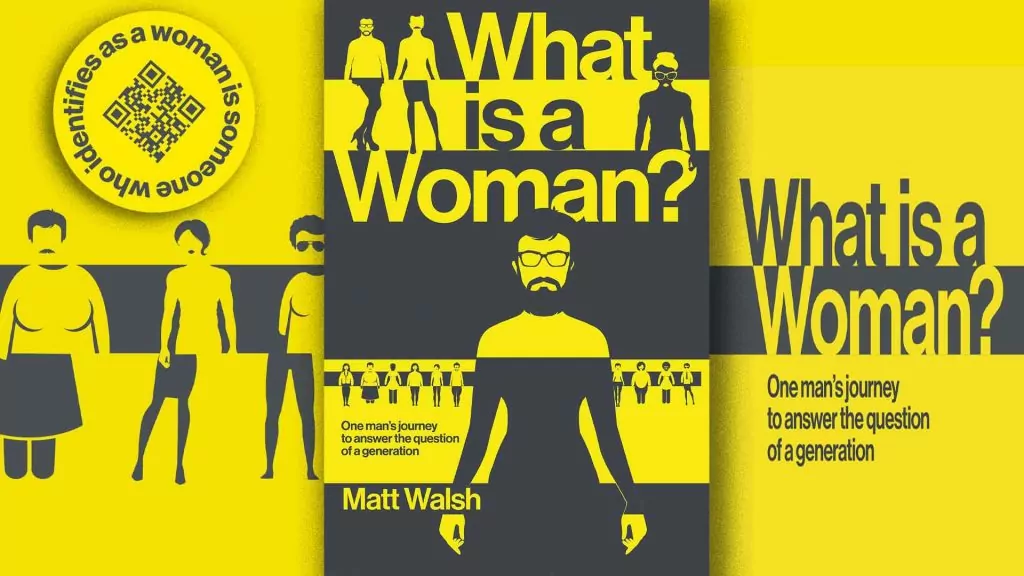
Marriage
The surprising secrets of highly happy marriages
What research and the Bible say about the best marriages
****
Marriage is meant to mirror Christ and the church. One can scarcely imagine a higher calling than this, yet all marriages fall far short of the ideal. Thus we not only misrepresent Christ and the church but also experience sadness and disappointment.
As we all know, the Bible has quite a few things to say about marriage. Unfortunately, both the secular culture and much of the Christian culture read the relevant passages through ideological glasses. This leads to endless controversy but brings about very little improvement to marriages.
Shaunti Feldhahn’s book, The Surprising Secrets of Highly Happy Marriages: The Little Things that Make a Big Difference, is a refreshing addition to the conversation. Feldhahn does not offer yet another opinion on what the Bible says but instead gives a research-based answer: this is what has been shown to work – try it. Not surprisingly, the results of her research mirror what the Bible says.
WHAT HAPPY COUPLES DO DIFFERENTLY
Feldhahn and her team, experienced researchers, studied almost 1,000 people, both Christians and non-Christians, to understand what the happiest couples did differently. The research showed that there are many “learnable” things that can make a big difference in a marriage, regardless of other challenges a couple may be facing. In other words, by learning what the happiest couples do, those in moderately happy or struggling marriages can improve their own relationships, although the most troubled couples will likely need other help besides this book.
Before we act on anyone’s suggestions about anything, we need to verify that they agree with the Bible. Thus this discussion of Feldhahn’s research results also notes how, as expected, the truth about the happiest couples is in line with biblical principles and admonitions.
First of all, “A handful of simple day-to-day actions increases the likelihood that our spouse feels that we care deeply about them, instead of feeling that we don’t.” These are little things, so seemingly insignificant that people are tempted to shrug them off, but people who adopt them will have a big impact on their spouse’s happiness.
A man tends to be happier if his wife:
- Notices his effort and sincerely thanks him for it.
- Says you did a great job at_______.
- Mentions in front of others something he did well.
- Shows that she desires him sexually and that he pleases her sexually.
- Makes it clear to him that he makes her happy.
A woman tends to be happier if her husband:
- Holds her hand.
- Leaves her a message during the day to say he loves and is thinking about her.
- Puts his arm around her or lays his hand on her knee when they are sitting next to each other in public.
- Tells her sincerely, “You are beautiful.”
- Pulls himself out of a funk when he’s morose, grumpy, or upset about something instead of withdrawing.
From a biblical point of view, it is not at all surprising that these powerful, gender-specific actions involve respect, appreciation, kindness, and caring. The happiest couples have also discovered other individual little things that make their spouse feel loved. Usually what matters to men are things that make them feel appreciated, and what matters to women are actions that communicate, “I care about what matters to you.” From a practical point of view, these things are simple, learnable, and doable and have a huge impact on marriages because they communicate care in a way the other person values.
Believing that your spouse cares about you changes everything. It turns out that over 95% of people, even in difficult marriages, sincerely care about their spouse and want the best for them. However, in struggling marriages almost half think that their spouse does not care about them. Feldhahn’s research shows that this is flat wrong.
As mentioned above, there are things we can do to help our spouse believe they are cared for. On the other hand, spouses also need to choose to believe the best about each other — that our spouse does care and that when they cause hurt it is unintentional. We need to choose to bear all things, believe all things, hope all things, endure all things, and to think about things that are true and honorable. A worthwhile sentence to ponder is, “He/she must not have known how that would make me feel, or he/she wouldn’t have done it.” The research shows this is almost always true.
EPH. 4:26: “DO NOT LET THE SUN GO DOWN ON YOUR ANGER…”
Another research result, surprising to Feldhahn who is a Christian, is that while many think the Bible instructs us not to go to bed mad, the happiest couples often do. Rather than staying up, exhausted, debating until they agree on a topic, they reconnect (i.e. assure each other that the relationship is okay even if they still disagree), put the issue aside until the morning, and go to bed.
A careful reading shows that the biblical principle in Eph. 4:26 isn’t about delaying bedtime, but involves not allowing anger to drag on. This principle is part of the lifestyle of the happiest couples, whether they are Christian or not. Emotional reconnection, often a personal bit of sign language, needs to be both initiated and accepted, something that very happy spouses excel at but struggling spouses do not practice.
1 COR. 13:5 “LOVE…KEEPS NO RECORD OF WRONGS”
In unhappy marriages, spouses tend to keep score of the bad things the other person does and the good things they themselves do. The happiest couples keep score, too, but differently. They focus on the good things the other person does and intentionally show gratitude. They also notice and express more kindness, admiration, respect, and forgiveness.
Closely related is that the happiest couples actively work to change their negative feelings and responses. This countercultural idea of replacing unhappy or angry thoughts and actions with positive ones, instead of venting, has an enormous impact on marital happiness. The research is simple: Stop focusing on, thinking about, or speaking about what irritates you; rather, honor the other person in your thinking and base your responses on that instead. In fact, if you do and think what is right instead of what you feel like, then your feelings will change. Or in the words of a happy couple, “We have found that when we act loving, then eventually, wow, we are loving!”
The happiest couples not only adjust their attitudes, feelings, and opinions, but also adapt their expectations of each other. A clear factor in unhappy marriages is a longing for the other spouse to be or do something that they find difficult or impossible.
The happiest spouses, on the other hand, are grateful for the ways their spouse is able to meet their needs and do not ask for the impossible. In other words, they do not tell themselves, “If he/she really loved me, he/she would_____.” Closely tied to this, happy couples tell each other what they need, but struggling couples assume the other person can, and should, figure this out on their own.
TOGETHER TIME
Research shows that “Not only do happy couples spend time together because they are happy; a big part of the reason they are so happy is that they are spending time together.” They prioritize hanging out together and doing things together even during seasons of travel, busyness, or marital difficulty. What does this look like? It can involve romantic dinners, but more often it’s something simpler, like going for a walk, watching the kids play sports, or carving time out of a busy schedule just to be together. The happiest couples all see the other person as their best and closest friend, a friend they want to stay close to no matter what, and their actions reflect that.
Finally, the happiest couples are kind, gentle, and self-controlled in how they talk to each other. Yes, they bring up all sorts of topics and they are honest with each other, but they do so without disrespect and they carefully avoid hurting each other. What’s more, they are at least as considerate in private as in public. “If you wouldn’t say it that way to a close friend, don’t say it that way to your spouse,” seems to sum it up.
MANY OF THE HAPPIEST COUPLES ARE CHRISTIAN
Feldhahn found that the happiest couples focus on something greater than their marriages and that many of them are Christian. In fact, couples who agree that “God is at the center of our marriage” are twice as likely to report that they are very happy than others. Many of the happiest couples worship together, share key values, focus on serving their spouses instead of being served, look to God for power to be selfless, and trust God for the outcome. They emphasize they do not look to marriage for fulfillment and meaning, but to God.
The happiest couples are fully invested in their marriage and do not hold back emotionally, financially, or in other unhealthy ways. They do not have a secret stash of money “just in case,” they are open with each other, they trust each other, and they work at their marriage. In biblical words, they act as though they are one, even though the world says that is a dangerous thing to do.
In most highly happy marriages, each spouse credits the other for the happiness in their marriage, “and they live in regular, conscious gratitude as a result.” They are amazed that things are so good, as this one quote from a grateful wife sums up, “The fact that I get to live with him over the course of my lifetime is one of the biggest scams I’ve pulled off.” Many spouses feel this way, but the happiest ones make a conscious effort to let the other person know.
So, in a general overview, what do the research results suggest? Although Feldhahn does not discuss this, the happiest couples tend to be the ones who live according to biblical principles. They accept the fact that marriage means oneness and that divorce is not an option. They aim to show gratitude, kindness, respect, and consideration. They accept the biblical view that feelings are not the standard by which they must operate but rather adjust their feelings by adjusting their thoughts and actions. They do not expect happiness and meaning from their spouse but look to God instead. Conversely, research suggests that struggling couples are much more likely to be self-centered, seek meaning in their spouse or marriage, have unrealistic expectations, hold back, criticize, avoid each other, be nicer in public than private, and be negative.
THE CHANGES ARE SIMPLE
 The good news in Feldhahn’s research is that, once people know what behaviors and attitudes are good for a marriage, once they understand how biblical principles apply, they can make an effort to change. They are no longer left wishing they knew what to do in practical, everyday terms. Now they know. What’s more, it turns out that even if only one person commits to change, the marriage will benefit.
The good news in Feldhahn’s research is that, once people know what behaviors and attitudes are good for a marriage, once they understand how biblical principles apply, they can make an effort to change. They are no longer left wishing they knew what to do in practical, everyday terms. Now they know. What’s more, it turns out that even if only one person commits to change, the marriage will benefit.
Feldhahn gives ten suggestions for implementing her research results, but the basics are simple: Rely on God, build only one or two new habits at a time, and set up daily reminders so you won’t forget them. Above all, be grateful for success and patient with setbacks; in this broken world learning godly habits and attitudes is no easy matter.
How does this all apply to those who are not merely hoping to improve a good marriage but are struggling in a very difficult one? Struggling couples and those who help them can find hope in the statistics shown in the sidebar, especially #4 which emphasizes that these principles of a happy marriage are simple and can be learned. It may also help to note #2, that many of the happiest couples in Feldhahn’s research were deeply unhappy before they learned how marriage works.
THE CHANGES ARE HARD
Do note that, although the principles suggested by the research are simple, they are not easy for anyone, whether happily married or struggling, to apply. Change is never easy, nor are repentance, apologies, and forgiveness.
The research reminds us that a good marriage requires the fruit of the Spirit, love, joy, peace, patience, kindness, goodness faithfulness, gentleness, and self-control. We not only need to pray for the fruit of the Spirit, but we also need to make every effort to add virtue, godliness, self-control, affection, and more to our faith.
In other words, we need to live close to God and humbly immerse ourselves in his wisdom instead of the world’s. This, one of the blessings of marriage, brings us closer to God as we seek to understand how He wants us to live with the spouse He has graciously given us. Although all of this is a work of the Holy Spirit, it also involves our deliberate, thoughtful effort, and in the case of struggling couples, it may require outside help.
Our marriages are important and we need to obey God in them. Feldhahn’s research, reflecting the Bible, helps us make wise daily choices about our attitudes and actions that will simultaneously enhance our representation of Christ and the church and increase the joy in our marriages. May God bless us all as we strive to have better marriages to his glory and for the benefit of our spouses, children, churches, and communities.
For a thorough explanation of Feldhahn’s research and results, please read her book “The Surprising Secrets of Highly Happy Marriages.” For those who wish to work through these ideas systematically, some very helpful worksheets, great for thinking this through on your own, or with your spouse, are available here at AnnieKatesHomeschoolReviews.com. This first appeared in the Jan/Feb 2018 issue.






























